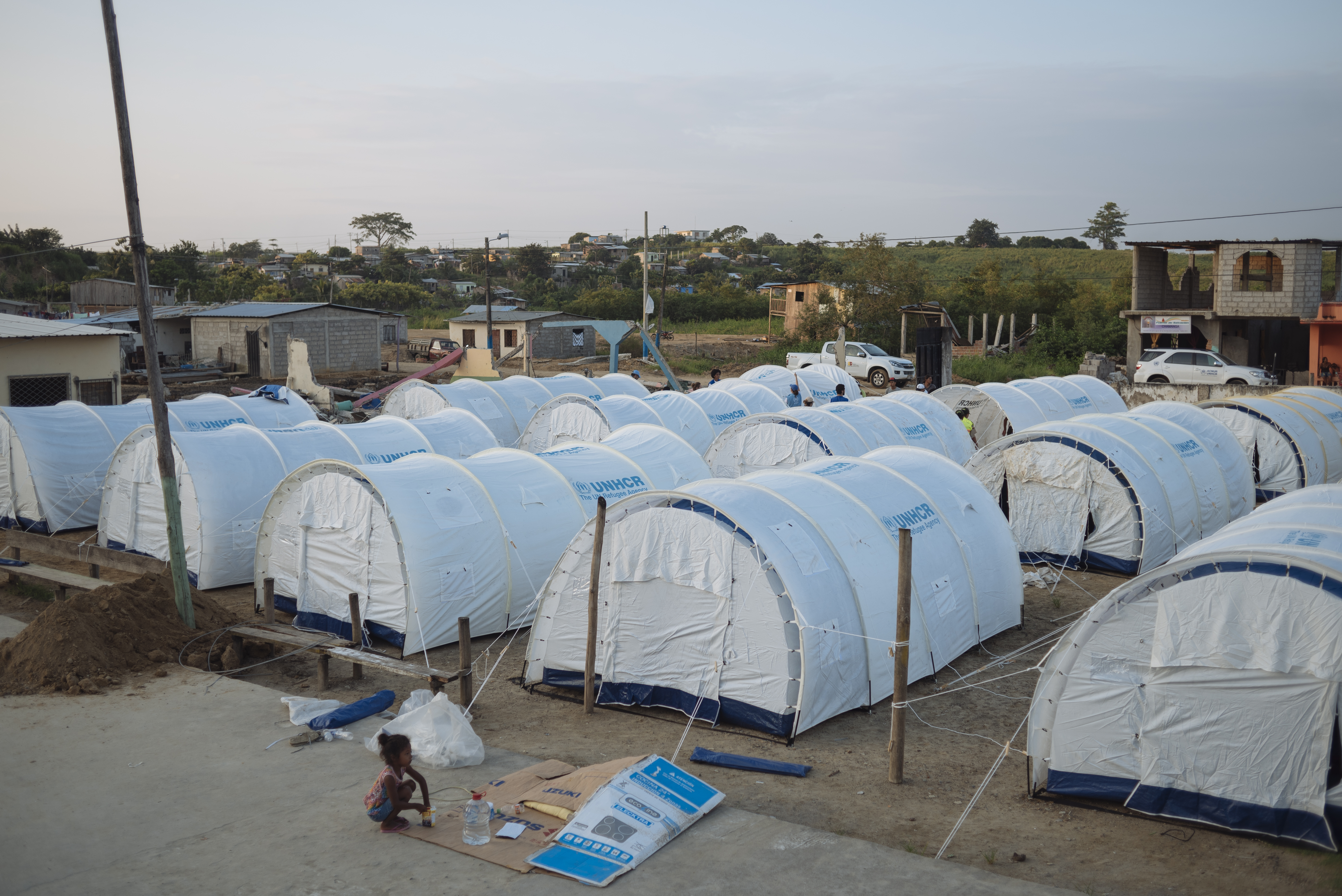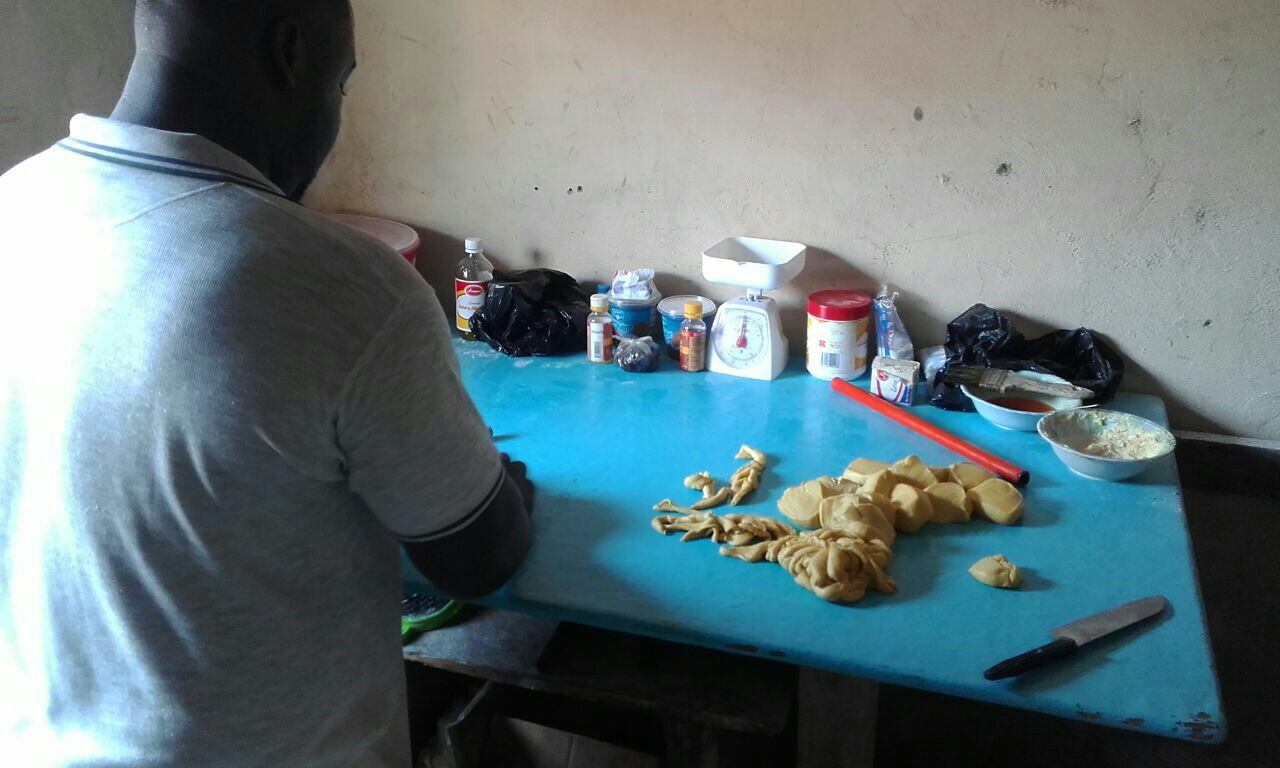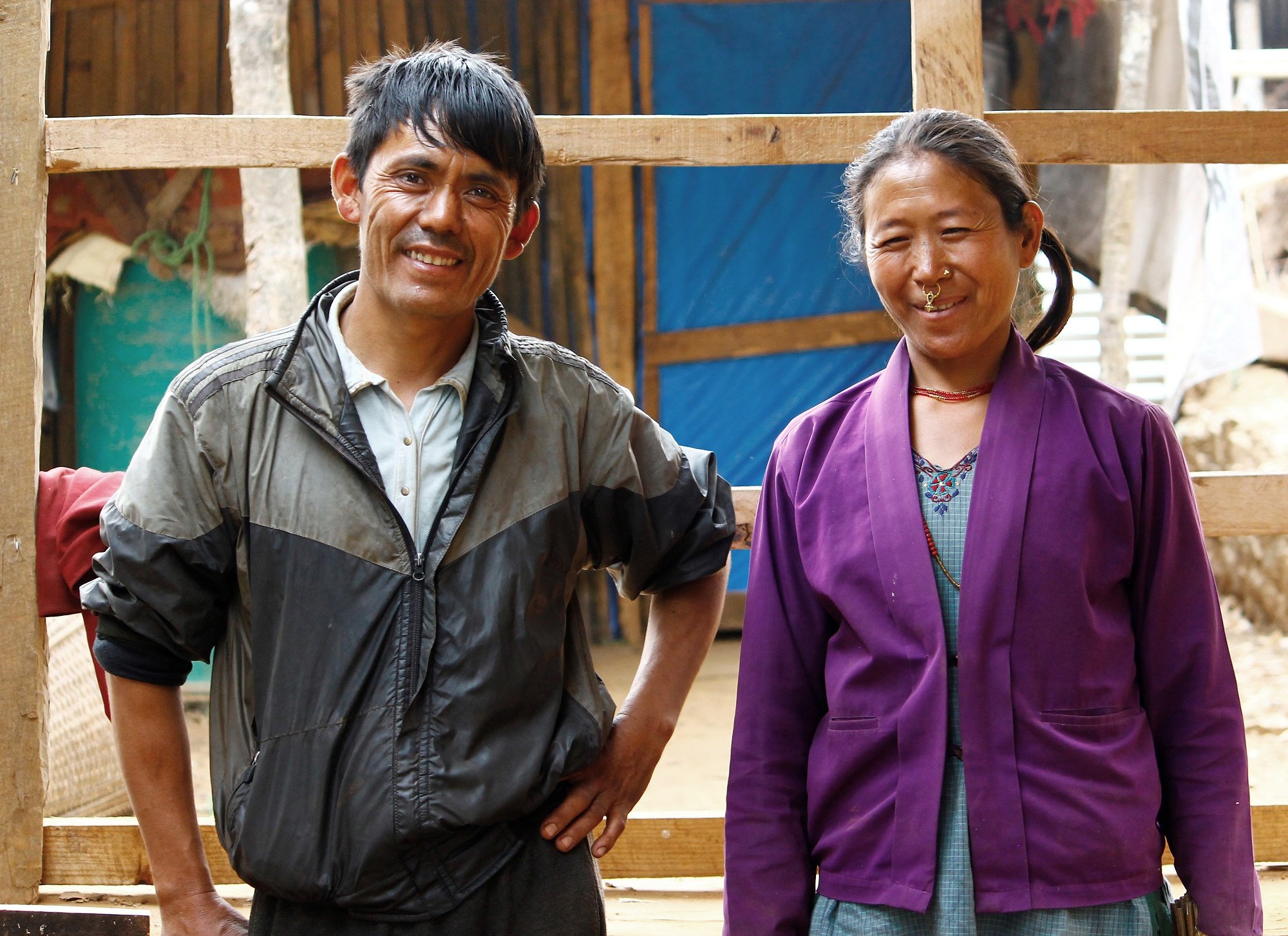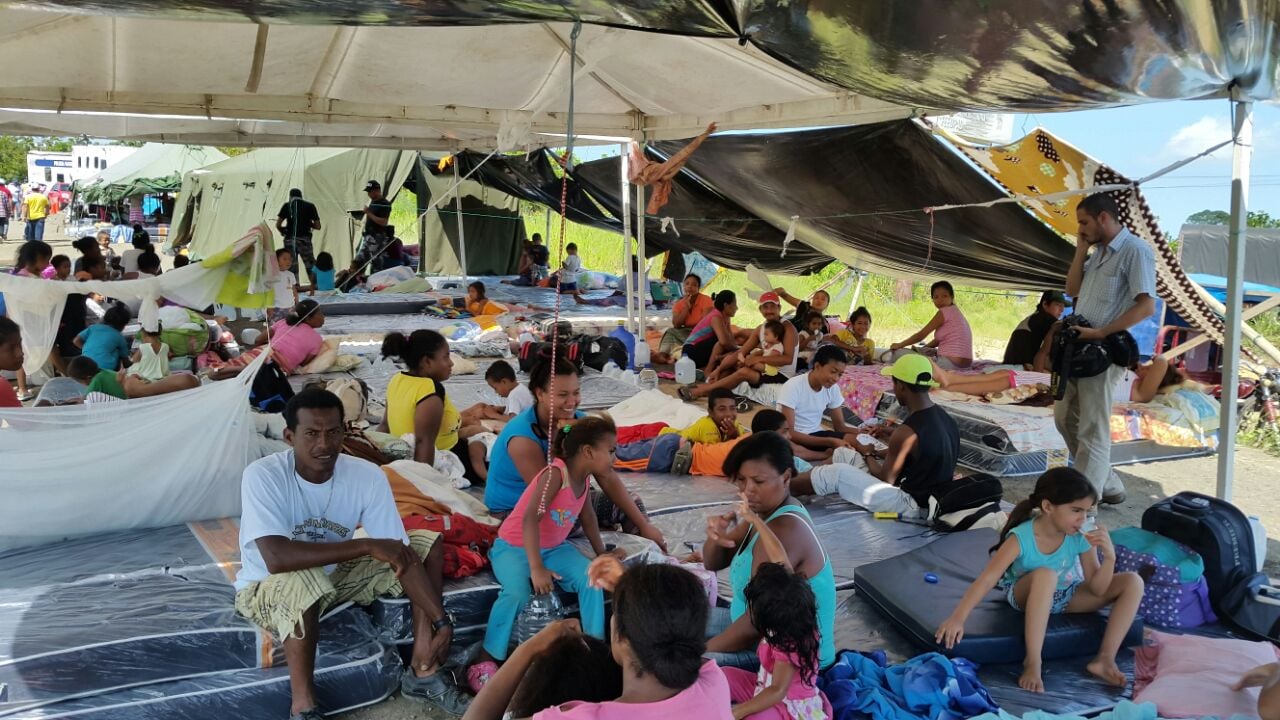Camps closing, but mobile teams plug away in Pakistan's quake areas
Camps closing, but mobile teams plug away in Pakistan's quake areas

MUZAFFARABAD/BATAGRAM, Pakistan, Apr 12 (UNHCR) - Build, maintain, remove - that's the job description of the UN refugee agency's mobile teams, a task that is coming full circle in the earthquake relief effort in northern Pakistan.
Six months after the devastating earthquake of October 8, more than 70,000 quake survivors have gone home from the relief camps and over 30 camps have closed. But the work of the mobile teams is far from over.
In Muzaffarabad, the provincial capital of Pakistan-administered Kashmir, the technical quick-impact teams are fixing the water and sanitation problems in Dahria Sayyedah camp. Within four days, they managed to set up 20 latrines, 10 showers, five washing pads where people can do their laundry and a 1,500-gallon water tank.
"While the focus now is very much on facilitating returns, we can't ignore the poor conditions in camps where people may not be able to go home immediately," explained Morgan Morris, UNHCR's emergency coordinator in Muzaffarabad.
The vast majority of Dahria Sayyedah camp's 1,427 inhabitants come from the surrounding mountains and have lost their homes in landslides. Ensuring basic living standards for them in camps is one of UNHCR's priorities as the lead agency for camp management under the joint UN response.
Another continuing challenge is scabies, a skin problem caused by poor hygiene and sanitation. Some 2,000 cases were identified in several Muzaffarabad camps recently.
The camp management mobile teams provided scabies treatment in Jalalabad Park camp last week. "This is the second camp within two days where we finalised our anti-scabies distribution," said a team member from Best, UNHCR's local implementing partner. "We handed out disinfectants, soap and plastic tubs to 209 families in half a day."
The families were taught to treat and prevent problems like scabies and lice. More serious medical cases identified by the mobile teams are referred to the World Health Organisation for assistance.
"In the beginning, we focused on building the hardware [latrines, bathrooms, communal kitchens, pavements] and software [hygiene, sanitation, fire safety awareness] in camps," noted Michael Zwack, head of the camp management cluster. "Now we're turning our attention to cleaning up the camp sites as people go home."
In North-West Frontier Province, three relief camps near Batagram have closed after over 21,000 people left for home since March 10. In Kund camp, the mobile teams were engaged in solid waste management, dismantling and disposing of the remaining camp infrastructure, and site rehabilitation. Within three days, the site was restored to its environmental state prior to the establishment of the camp.
In Maidan and Banian camps which closed in late March, site rehabilitation started last week and UNHCR is working with its partners on decommissioning these sites.
"In other areas, our teams continue to monitor the closure of camps to ensure that all concerned agencies dismantle the structures they built and clear the sites in an environmentally sound manner," said UNHCR site planner Tako Ganai.
"Environmental considerations have a direct impact not only on the physical surroundings but also on the welfare and well-being of people living in the area," he added. "I'm glad we could draw on UNHCR's decades of experience in establishing and managing thousands of refugee camps worldwide for this earthquake relief operation."
The UN refugee agency currently has deployed more than 50 mobile teams in the quake zone funded by the European Commission for Humanitarian Aid (ECHO) and the United Kingdom's Department for International Development (DFID).
By Fatma Bassiouni in Muzaffarabad and Batagram, Pakistan







